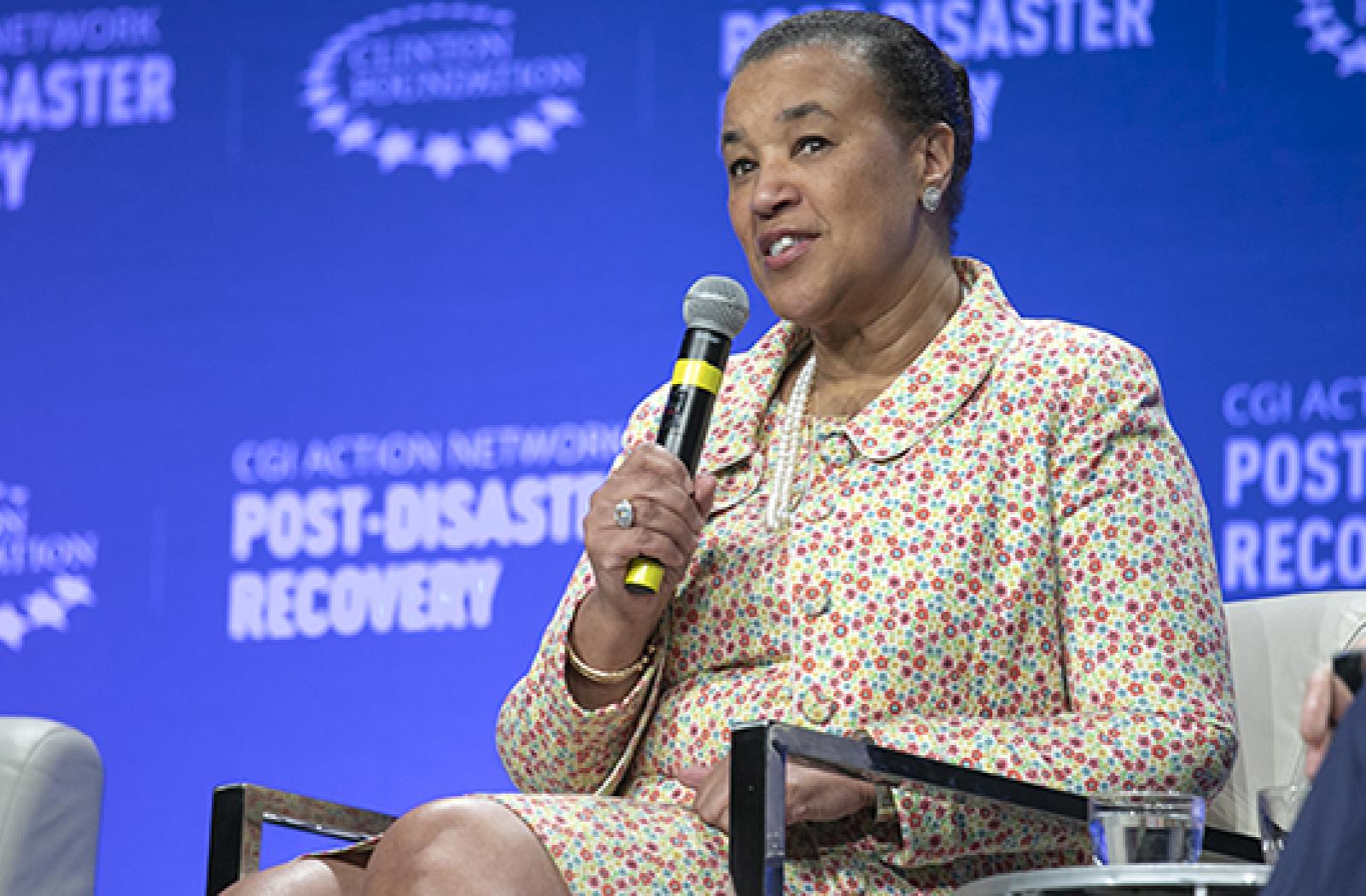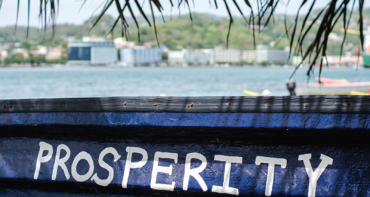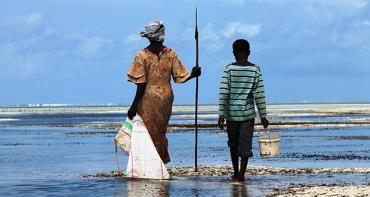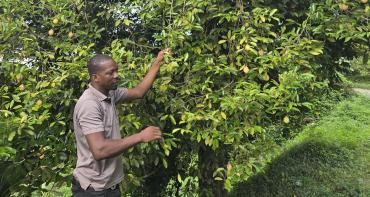More than 500 representatives from governments, non-profits and global conglomerates joined forces to accelerate resilience building in Caribbean countries still recovering from hurricane devastation.

More than 500 representatives from governments, non-profits and global conglomerates joined forces to accelerate resilience building in Caribbean countries still recovering from hurricane devastation.
International organisations and businesses, including Expedia, IBM, InterEnergy, First Bank and Pfizer met in San Juan Puerto Rico at a mega networking session on post-disaster recovery, hosted by the Clinton Global Initiative.
Representing the Commonwealth, Secretary-General Patricia Scotland said the event was a prime opportunity to shift the global spotlight onto countries that are still suffering the aftermath of Hurricanes Maria and Irma that devastated Antigua and Barbuda, Dominica, Puerto Rico, the Virgin Islands and others in 2017.
“A year and half ago Hurricanes Maria and Irma swept through the Caribbean, erasing decades of infrastructural development, jobs, homes and lives. Indeed, in the recent past we have seen widespread devastation across the Commonwealth with mudslides and desertification in Africa, floods in Asia, cyclones in the Pacific and storms in Europe.
“It is a heart-wrenching story, but it is also a story of the power of goodwill and concerted international action, and the resilience of the people affected. Because of global action, Dominica, the country most affected by Hurricane Maria, is now set to achieve a nine per cent growth in its economy in 2019 after losing 226 per cent of its GDP as a result of the hurricane.”
The Secretary-General continued, “But there is a lot more work to do politically, socially and economically. For example, we still have to address the issue of absorptive capacity, which is the ability to effectively access and use donated development assistance - particularly as a preliminary Commonwealth study shows that vulnerable countries failed to receive and use US$4.5 billion worth of development assistance donated between 2010 and 2016.
“So, this initiative by President Clinton is a prime opportunity to remind the world that, although the world’s news agenda has moved on, governments are still drowning in debt, and people are still grieving, still homeless, still jobless and still in desperate need of our help.”
The Secretary-General said that commitments made will ensure Antigua and Barbuda, Dominica and all the countries affected by Hurricanes Maria and Irma can continue to rebuild economies, infrastructure, communities and homes that are strong enough to withstand the onslaught of future natural disasters.
She said, “The Commonwealth is committed to continuing its work in crafting a multidimensional resilience-building programme for the benefit of its member states.”
In 2016, the Commonwealth Secretariat launched the Commonwealth Climate Finance Access Hub, which installs experts in its developing member countries to ensure that their applications for climate-related funding are successful. So far £4.1 million has been mobilised for Commonwealth members from an initial investment of AU$1 million, with a further £201 million in the pipeline.
Other ongoing Commonwealth initiatives include:
- The Commonwealth Blue Charter – a joint commitment by member countries to protect the ocean and sustainably manage its resources;
- ‘First Descent’, a collaboration of ocean research institute Nekton, the Commonwealth and other partners to launch a multidisciplinary exploration of never-before-accessed ocean territory. This will offer Commonwealth governments important insight on ocean governance issues such as conservation, climate change and fishing;
- The new ‘Disaster Risk Financing Portal’ will give countries open, 24-hour access to financing facilities so they can better manage the impact of disasters;
- A proposed Universal Vulnerability Index to build a global consensus on the definition and measurement of countries’ vulnerability to environmental and financial challenge as a metric in better-targeting development support;
- The Commonwealth ‘Common Earth’ programme to explore innovative ways of healing and regenerating our atmosphere, land and ocean from climate change effects;
- The Commonwealth Law and Climate Change Toolkit, created in collaboration with the United Nations Framework Convention on Climate Change and UN Environment, to help develop laws to implement the Paris Agreement;
- A ‘Connectivity Agenda for Trade and Investment’, to support global growth, create employment and promote sustainable development; and a facility to provide Commonwealth small states with up to US$100 million of incremental finance to boost trade; and
- A world-class debt management programme to help countries create effective debt management strategies.
Opening the event, President Bill Clinton commended the Commonwealth and others for continuing to support the countries affected by Hurricanes Maria and Irma.
He said, “The challenges involved in rebuilding a place and leaving it in better shape than it was before a storm like this are not met in a day or two and are not for those with short attention span. So, I am very grateful for those of you who are here 15 months later and who will be here 15 months from now.”
Dominican Foreign Minister Francine Baron, reiterated the Secretary-General’s call for a ‘resilience lab’ in countries like Dominica to learn from countries’ response to the diverse climatic and other challenges inherent in post-disaster recovery.
She said, “We heard the Secretary-General of the Commonwealth talk about 31 states that have similar challenges to Dominica, and we are hoping we can develop systems, procedures, toolkits that can be replicated in other countries that will be facing similar challenges.
“What we know for sure is that climate change is real. We will have hurricanes in the future but we do not have to suffer the same level of devastation that we did with Hurricane Maria.”
Image credit: Paul Morse/Clinton Foundation



